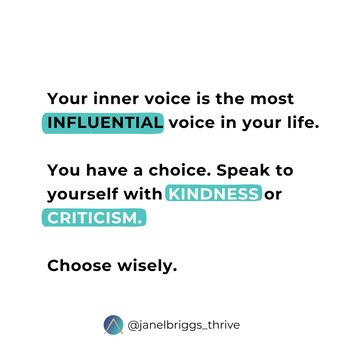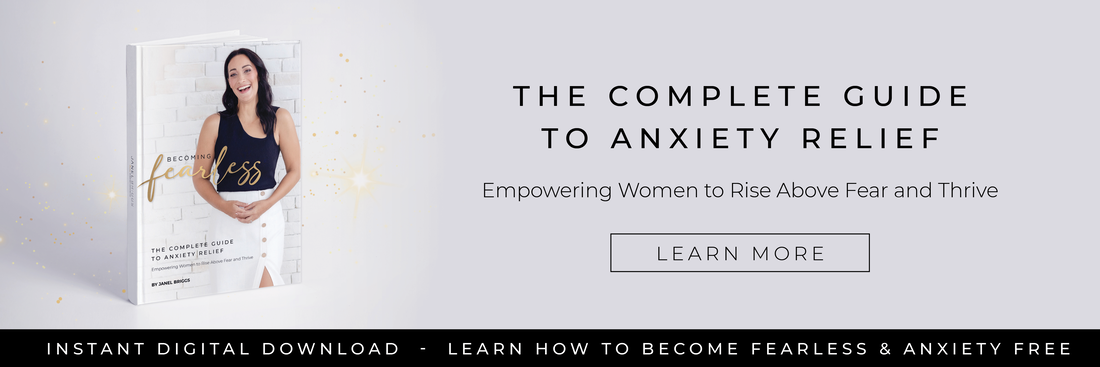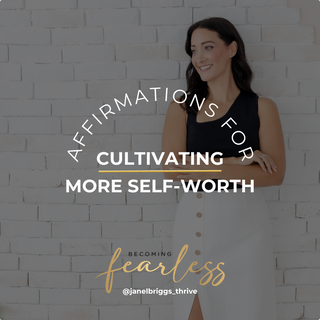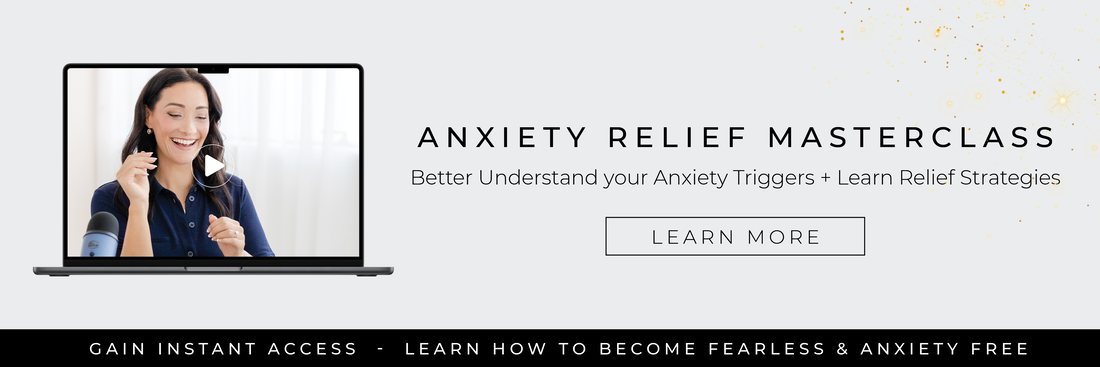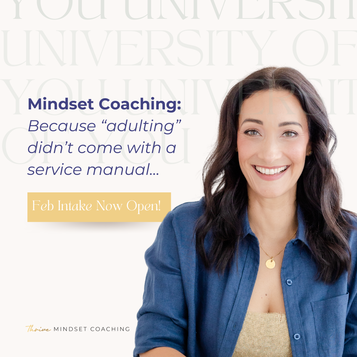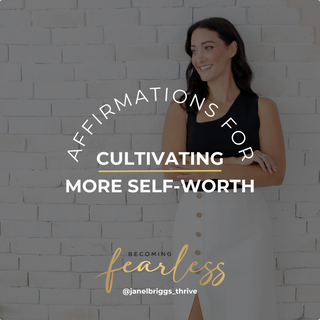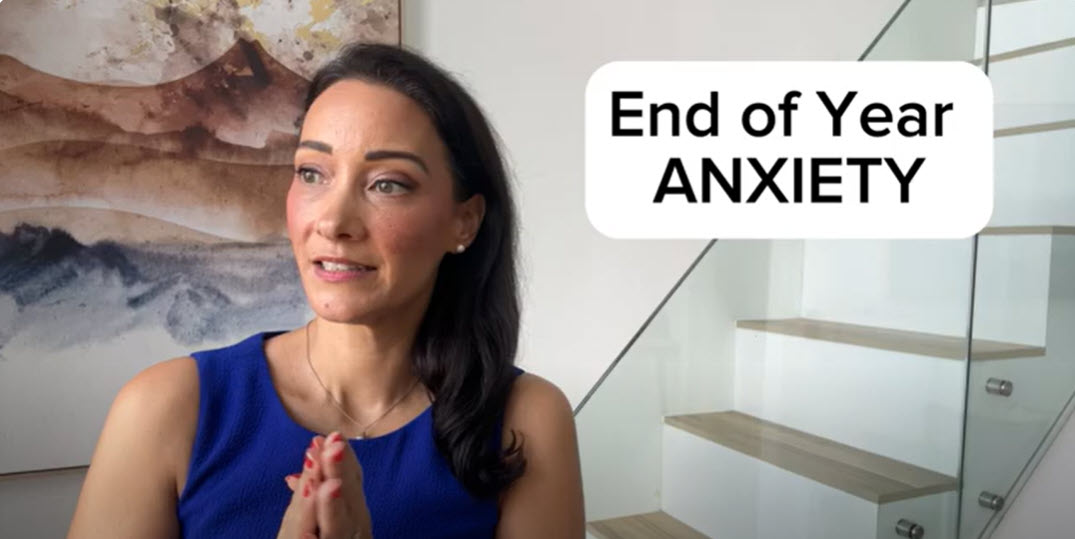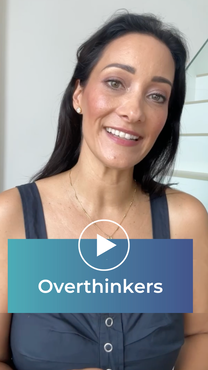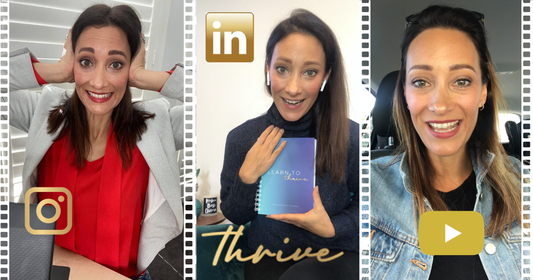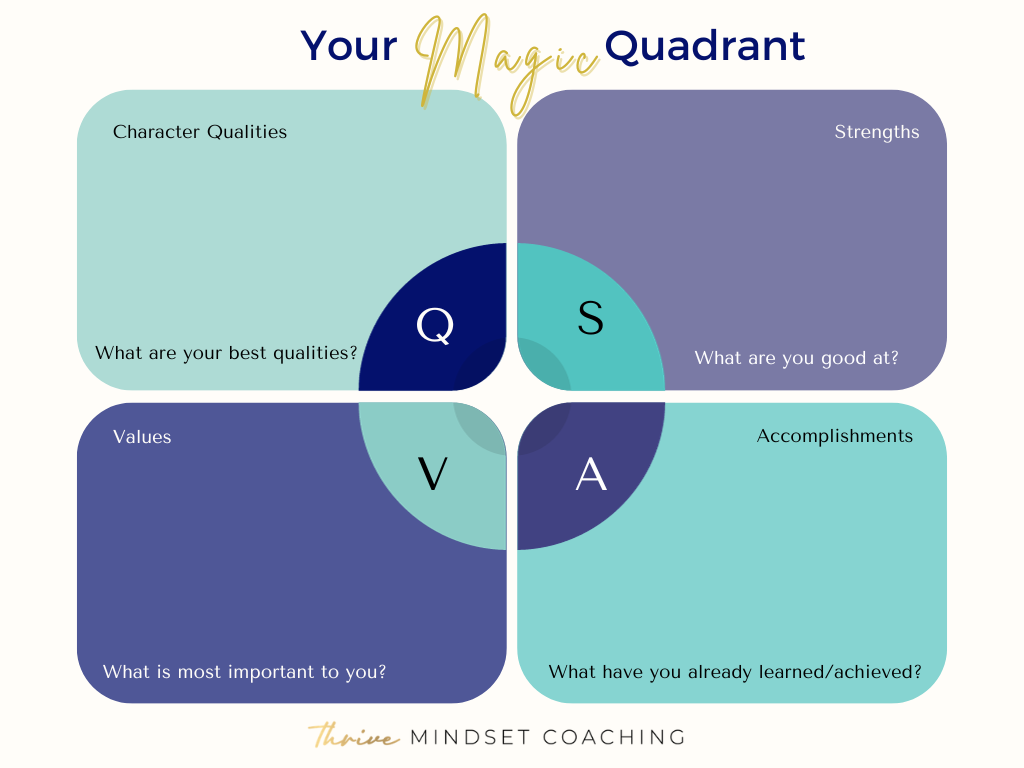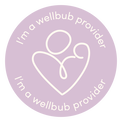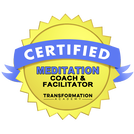AuthorJanel Briggs Categories
All
|
Back to Blog
Learning to Love Yourself Better12/4/2024  Learning to love and accept yourself is the greatest gift you’ll ever give yourself. It's better than that expensive designer bag on your wish list. Better than those new shoes you've been eyeing off. And yes, even better than the Euro summer vacation you're no doubt dreaming of! Problems and challenges don’t fix themselves by doing a geographical for 2 weeks or hitting the shops for a dose of retail therapy. After the dopamine hit is gone, and the holiday glow fades, you’re still stuck with the same thoughts, behaviours, and stress you had before. What I’ve come to understand on my journey as a coach is that self-love and acceptance doesn’t come easy for most women. We are our own worst critic. We are the first to blame, body shame, call ourselves stupid, useless, and much much worse. Growing up the concept of self-kindness wasn't always taught to us by the women in our circle, or by teachers at our schools. And sources like social media have become a minefield of judgement and comparison. However, self-love and acceptance are the two biggest foundations for a positive and fulfilling life!1) Loving yourself enables you to cultivate healthier relationships with others. When you know your own worth, you are less likely to seek validation from external sources and can form genuine connections based on mutual respect and understanding. 2) Self-love equips you with the resilience to bounce back from setbacks and challenges. You develop a deeper sense of self-trust and inner strength, allowing you to face difficulties with courage and grace. 3) By embracing self-acceptance, you free yourself from the trap of comparison and perfectionism. Your inner critic become less concerned with measuring up to others' standards and more focused on nurturing your unique strengths and qualities. But of course, the million-dollar question is… “If I was never taught how to love and accept myself, then where do I even begin?” ✨ Start by becoming aware of your critical thoughts, feelings, and self-talk ✨ Commit to treating yourself with the same kindness and understanding that you would offer to a close friend ✨ When you walk past that mirror – what would you say to your bestie? Would you ridicule her and tear her down OR would you show her compassion and pump up her tires? You always have a choice; you can continue the path you’ve been on and keep get the same results. Or you can make a change and BE the source of love and acceptance in your own life. About the Author: Janel Briggs is an Author, Mindset Coach, Practitioner of NLP and Timeline Therapy on a mission to support women across the world in overcoming their anxiety - personal insecurities and professional fears - to build unwavering confidence and self-belief. Mindset Coaching aims to help you fearlessly elevate your life and career, and more importantly the relationship you have with yourself! Connect with Janel on social media via Linkedin or Instagram.
0 Comments
read more
Back to Blog
Where Are You on the Priority List?4/3/2024 Here's a reflection for all the care-takers out there. The mothers, fur-mama's and women in relationships who spend most of their time caring and holding space for other people (whether it be your partner, children, family, or in your friendships). I want to ask you a question: Where are you on the priority list of your life? Recently, I had to ask myself this question. And it's VERY interesting what came up! Last week my husband and I decided to invest in private 1:1 coaching for our son (who is 10yo) for a sport he loves. This coaching would help him to build more confidence and fine tune his skills. I did my research, got a referral, and the quote came back at $200 for a number of sessions. It was literally a split-second decision - YES, let's do it! Within 24hrs the first session was set up. It was a "no-brainer" for us to spend $200 on our son's progression in this sport, his happiness is high on our priority list. On the flipside, I reflected on how I would have responded if the tables were turned a few years ago. I wondered how long it would have taken me to DECIDED to spend that same $200 on myself??Perhaps you could ask yourself the same thing? I can tell you, the decision would have taken wayyyy longer than 24hrs!! My mind would have been spinning thinking about all the justifications, the pro's and con's, in an attempt to ward off the overwhelming feeling of... GUILT. "I can't do that, I can't spend that much on myself... it's too much! I'll find another way. I'll get another quote. I'll wait to see if I REALLY NEED IT." You may have had a similar response or mindset too?I've had clients tell me they're kids are always dressed in the best clothes - yet they're still wearing those old shoes with the hole in them they bought 5 years ago! Or, they'll even pay for the finest food, toys and new beds for they're fur babies - yet they're still using a broken hair brush from 2012! Or, they won't even blink an eye at loaning a family member or friend money to support their idea or dream - yet won't do the same for themselves! WHY ARE WE LIKE THIS??Honestly, I believe it comes down to priority and self-value. Where we place ourselves on our own priority list matters. We forget about how important it is to invest in ourselves, in our own progression, healing and growth. I can tell you that in every decision I used to make - I was at the bottom of my priority list. Somehow in my role as the "responsible care-taker" in my immediate and extended family I thought else's needs came before mine. What I came to realise (after hitting a rock bottom with my mental health in 2017!) is that my needs and taking care of myself HAD to come FIRST. I needed to be a top priority in my life, instead of bottom of the list. If I couldn't make myself a priority and voice my needs - then how would anyone else ever make me a priority too? My last questions for you is this: How can you move yourself up the priority list this week
And if you have any questions or comments on how to get started - please reach out! About the Author: Janel Briggs is an Author, Mindset Coach, Practitioner of NLP and Timeline Therapy on a mission to support women across the world in overcoming their anxiety - personal insecurities and professional fears - to build unwavering confidence and self-belief. Mindset Coaching aims to help you fearlessly elevate your life and career, and more importantly the relationship you have with yourself! Connect with Janel on social media via Linkedin or Instagram.
Back to Blog
In January you'll usually find me spending a lot of time over on LinkedIn. Honestly I love nothing more than seeing all the women making career moves and job changes with the fresh start of a new year. Women being celebrated for taking bold leaps into the new and unknown, brings me joy. I understand just how much anxiety and overwhelm arises when making a decision to change jobs, a career or industry. And how important it is to BE in the right mindset to make those big life decisions feel less daunting. People in general are known to struggle with making decisions and find it all very extremely overwhelming. Studies show that this is because we are creatures of habit, hesitant to step out of our comfort zones. When it comes to wading into the unknown we're wired to fear “losses” (what if it doesn’t work and I can’t go back?) more than we value potential “gains” (all the potential possibilities!). When our emotions (like fear, frustration, guilt, resentment) jump in the driver’s seat and dictate our decisions this can lead to several unhelpful roadblocks:
How do you face big life decisions with less overwhelm?Here's my quick 3 step strategy... you won't be surprised it's about clearing your mindset first! 1. DON’T make the decision from an emotional place For example:
Find ways to first calm your mind, process those emotions, get some rest and nourish yourself first. I promise the decision will come so much easier! 2. DO write your pro’s and con’s list
3. DO align your decisions with your values
Fear of making the wrong decision may be knocking on your door, but don't allow it be the reason you decide not to do something. Follow this strategy and take 5 seconds of courage to unlock the possibilities that are awaiting you! I would love to know - if you've been thinking about taking a leap recently, what's holding you back?? Shoot me an email [email protected]! And if we haven't yet connected on Linkedin - you can find me here JANEL BRIGGS  About the Author: Janel Briggs is an Author, Mindset Coach, Practitioner of NLP and Timeline Therapy on a mission to support women across the world in overcoming their anxiety - personal insecurities and professional fears - to build unwavering confidence and self-belief. Mindset Coaching aims to help you fearlessly elevate your life and career, and more importantly the relationship you have with yourself! Connect with Janel on social media via Linkedin or Instagram.
Back to Blog
Busting the Vicious Cycle of Self-Doubt29/1/2024 How you shut down the nagging voice of self-doubt that questions your cabilities, worth and decisions when she shows up? As people return to work in January a common theme I hear from clients after a period of “time off” is that this is when the self-doubt begins to sneak in (again). Whispering those negative thoughts and planting seeds of insecurity. When stop and take time off the work-life busy rat race, it can be hard to get back on it. Specifically when self-doubt is a pattern of thinking has become a comfortable habit; a habit that doesn’t serve you. But where does this self-doubt come from? Understanding the Roots Often its rooted in past experiences, societal expectations, or comparisons we have and make with others. The first step to relieving self-doubt is to recognise the thought patterns and honestly understand that your worth isn’t defined by external factors. The Mindset Coaching Approach Once you notice the pattern it’s crucial to break the cycle of thought that is constantly questioning your capabilities and decisions. But how do you do that? You've got to explore it: Q: What are you doubting? Q: Why are you doubting yourself and your capabilities? Q: If doubt wasn’t holding you back what would you be doing, believing or feeling? Rewrite the Negative Narrative Then tap into the positive thought spectrum that is already within each one of us. The simplest coaching tool I can share with you is - using Positive Affirmations - to rewire your mind's thoughts from words of DOUBT to self-BELIEF. Affirmations are positive statements that you repeat to yourself regularly to challenge and overcome self-sabotaging and negative thoughts. They act as a reset buttong for your mind. By consistently repeating the same phrases, you're rewiring your brain to focus on your strengths rather than weaknesses. They’re like a daily dose of inspo for your soul really, that reshapes your mindset. I’ve been using affirmations daily in my own life since 2017, and it’s the number one reason why I created Learn to Thrive Morning Journal. Affirmations helped me in my darkest days, battling anxiety and crippling self-doubt to remember that “Today and every day I am enough”. Instead of waking up every day and listening to all the negatives your mind wants to throw at you… all the “I cant’s” and “I dont’s” or “not enough’s” you take charge and affirm your worth, strength and capabilities. This tool when practiced consistently helps your mind in 3 ways:
Crafting Your AffirmationsThere are a few things to remember when crafting your own positive affirmations. They need to be short impactful statements focusing the mind on what you want. BE Positive and Present: Affirmations should be written or spoken in positive present tense verbage, avoiding negative words. Refrain from using words like not, dont, wont which all have a negative connotation. For example, "I am confident and capable" instead of "I will NOT doubt myself". BE Specific: Steer clear of generic statements, be specific about the qualities, attributes or goals you want to bring into your life and focus on. For example, "I am capable of handing any challenges that come my way today" instead of "I am resilient". Be Repetitive: The power is in repetition. Read, write, speak the same affirmations for at least 60-90 days. Let them become your mantra that propels you forward. Watch as your belief in these affirmations grows. If you're new to this practice download a copy of my free affirmations list and let that be your guide. Every Monday over on Instagram I help kick off your week with 5 Positive Affirmations ...(watch this and save for later!) The Mindset Shift Lastly, we need to dream bigger and bust any roadblock to the amazing life and career you are here for! Ask yourself: Q: What is doubt truly holding you back from? Q: If you assumed you had the skills, resources and resilience… what would change for you? Q: If doubt wasn’t in the picture, what could become possible for you? You mind is a powerful force. When you fill it with positive thoughts, your life will start to change. Above all else... just be kind to yourself.  About the Author: Janel Briggs is an Author, Mindset Coach, Practitioner of NLP and Timeline Therapy on a mission to support women across the world in overcoming their anxiety - personal insecurities and professional fears - to build unwavering confidence and self-belief. Mindset Coaching aims to help you fearlessly elevate your life and career, and more importantly the relationship you have with yourself! Connect with Janel on social media via Linkedin or Instagram.
Back to Blog
When Christmas Isn't Sparking JOY18/12/2023 This time of year can bring up big emotions for people. Not only do we have the overwhelming rush to the end of year finish line, but we also have so much added stress with “Christmas is coming”. I want you to know that if you are not joyously cruising into Christmas and the end of year, it’s OK. You are not alone. You're not a bad person or the “Christmas Grinch”. You’re probably just extremely overwhelmed, burnt out, beyond tired and perhaps at capacity with everyone and everything! Christmas and the new year often brings up anxiety! I know this feeling. I spent a few years of my life dreading Christmas day and the stress that comes from juggling “family relationships" and having to “act normal” when I felt way less than normal. It’s plain hard to be joyful when your mind feels scrambled and you've got zero energy left in the tank. Not to mention that pressure of staring down the road to 2024 … thinking what am I doing with my life? Why am I still so far away from where I should be? And how the hell am I going grin and bear it and avoid these questions from people at all those Christmas parties?! If you resonate with any of this, here is an approach for youIf you resonate with any of this, here is an approach for you: Honour your feelings. It’s OK to be feeling this way, there are many other who feel the same right now too but probably aren't talking about it. There’s no doubt you’ve been juggling a lot this year and likely just need time and space to process your thoughts, feelings and emotions. It’s ok to say No. I remember one year when my family asked me to host Christmas Day lunch and I was struggling with my mental health. My anxiety immediately triggered at the thought of seeing everyone in my home roll up with Esky’s full of alcohol and drinking all day. I knew that my head and nervous system could not handle any alcohol fueled arguments or stress. So, with the help of my mentor I crafted some words to create a boundary that honoured my feelings. I wrote to each family member and told them I would host, but if it was at my house, it would be an alcohol-free day. They agreed, respected my wishes and came along. They ate the food, opened presents, left early and went on to be merry somewhere else! By all accounts for me it was a GREAT DAY. Zero anxiety, and lots of laughs. Focus on self-care. Perhaps this is what your holiday break is about, a time for rest and recharge rather than all the Christmas ‘tis. Less giving energy out, more recouping energy in. Do things that bring you comfort and relaxation. You don’t have to have it all figured out by December 31st. In actual fact December 31 is just another day in the calendar. Take a breath and release the pressure. Everything will work itself out in time. Go slow and be kind to yourself. Ande let this be your reminder to take a breather. You can and you will get to that end of year finish line. And please take care out there, if you're stressed and emotions are high remember that there are many others that are too. All the best, JB.  About the Author: Janel Briggs is an Author, Mindset Coach, Practitioner of NLP and Timeline Therapy on a mission to support women across the world in overcoming their anxiety - personal insecurities and professional fears - to build unwavering confidence and self-belief. Mindset Coaching aims to help you fearlessly elevate your life and career, and more importantly the relationship you have with yourself! Connect with Janel on social media via Linkedin or Instagram.
Back to Blog
If you’ve ever found yourself waking up feeling on-edge, super anxious, worrying about something you might have said or done after a night out of fun and drinking, rest assured - you're not alone. 'Hangxiety' is a common experience shared by many women, so I want to help you understand the cause better to so you can manage through it and breathe easier this holiday season! Our Body + AlcoholThe science behind 'hangxiety' is rooted in the intricate workings of our brains when alcohol is consumed:
If you’re interested in learning about how alcohol + sleep affect anxiety I cover this topic in detail in my new book “Becoming Fearless” – The Complete Guide to Anxiety Relief along with 12+ anxiety relief tools! Women vs Men’s 'Hangxiety'Women tend to metabolise alcohol differently to men due to differences in body composition and our enzyme levels. This can result in a quicker rise in blood alcohol concentration while drinking and intensify both the initial “calming effects” and subsequent “glutamine rebound” = anxiety. Women who are already prone to anxiety are more susceptible to experiencing intensified 'hangxiety' after drinking. Reason being - our body’s anxiety alarm system is super in tune with hormone fluctuations and likely in a pattern of triggering to negative or worried thoughts! How to Cope with Post-Drinking Anxiety The duration of the ‘hangxiety’ feeling will vary person to person, typically peaking the day after and lasting up to 24 hours or longer, depending on factors like how much alcohol you drank and physical/emotional/mental conditions (aka if you’re in a high stress period/already anxious mindset then look out - symptoms will be intensified!). Waking up with fragmented memories from the previous night can also contribute to post-drinking stress of course. Dealing with 'hangxiety' requires a high level of self-compassion. This is where you need to remind yourself -
Do something to distract and relax your mind, such as watching a favourite show or practicing mindfulness through meditation, aids in easing 'hangxiety.' And avoid consuming more alcohol or stimulant’s like coffee, which can just exacerbate anxiety. ‘Hangxiety’ PreventionIf you want to prevent 'hangxiety' it will involvessome moderation and mindful drinking and I also believe assessing where you’re at emotionally and mentally before you drink is key.
By understanding how the body works and the triggers, and implementing a few preventive measures and coping strategies, I hope 'hangxiety' won’t overshadow this year’s festive cheer for you!
Back to Blog
This one is for all the Overthinkers13/11/2023 Do you ever find your mind spinning about all the “what if’s” and the “unknowns” within a problem or situation and you just can’t seem to shut those damn thoughts off? Overthinking is something that happens to the best of us, and it’s a sure-fire trigger for anxiety. It’s kind of like there’s a dance party going on in your mind with all these thoughts on a wild and random playlist. You’re expecting “Sunday Chill” and get delivered “Hard Rock Hits of 1990”. YIKES! When things get too chaotic, we often forget that we are the DJ of the crazy party going on in our mind. We can take control of the playlist, even if the volume of the music feels a little loud and out of our control. We can dial it down. But how? This week, perhaps start by recognizing when you are overthinking and practice interrupting the pattern of thought. Instead of feeding the train of thoughts with MORE questions and scenarios on the overthinking train, try to disrupt the flow and change the tune. Here is a recent video I did for my overthinkers on Instagram which will help! Overthinking is very common in women who experience anxiety. In fact I’ve dedicated a whole chapter to understanding “why we overthink” in my new book, Becoming Fearless launching next Tuesday Nov 21. Here is a sneak peak of some things I share that can help to quiet down the internal noise:
It takes practice, but honestly from experience there is no amount of rehashing a problem that will help find a resolution in THAT moment if you’re anxious. When our thoughts are like a loud party, then we don’t have space to listen to our inner voice of intuition who is trying to give us advice! Shift focus and come back to it at another time. This is your reminder:Sometimes we have to let go of the problem before we can figure it out. The same thinking that got us into the problem, won't always get us out of it! Ps. You can learn more about Becoming Fearless here and jump on the waitlist to get a copy. It's packed full of actionable tips and tools to help you relieve anxiety, naturally!
Back to Blog
Worrying is Pointless6/11/2023 A simple idea to help you stop worrying.I meet many women who are stuck in what we call in coaching “worry loops”. Where the mind becomes fixated on all the negative what IF’s within a situation. And one worry thought leads to another and another! Once you’re in a worry loop it can be hard to take yourself off the worry train. But here are 4 reasons why I believe worrying is pointless: 1. Worrying doesn’t change the outcome If you think about it, have you ever altered the course of an event by spending all that energy worrying? Probably not. So why do we waste so much precious energy on it? 2. It robs you of the present moment Life’s most beautiful moments are happening right now. When you worry you miss out on “being present” and all the fun, connection and beauty that’s around you. 3. Worrying zaps your confidence and inner peace It’s like carrying a massive problem sack with you everywhere you go. It holds you back and keeps you from showing up as your best self. 4. Worrying is a MASSIVE trigger for ANXIETY! What IF’s and worst-case scenarios type thoughts are a red flag for the mind to trigger anxiety alarm in the body and send out the troops to fight the “perceived danger”. Insert >> sleepless nights, mental and physical exhaustion, MORE racing thoughts and all those annoying anxiety symptoms. It's super important for me to share that you can stop the worry train.It's possible, perhaps this week if worry is at the forefront of your mind you can start here:
Step 1 - Become aware of when your mind is drifting to worry. Step 2 - Take a breath and remind yourself that this train of thought is essentially pointless, you cannot control all the “what IF’s” and this thinking will lead to anxiety. Step 3 - Let it go, not every detail has to be decided today. Practice bringing your mind back to the present moment. It's crucial to remember that worrying drains your precious energy and robs you of the beauty of the present moment! What's more important? By recognizing the pointlessness of worrying, you can be more proactive about your anxiety. Janel Briggs Thrive Mindset Coaching ps. Look out for a special announcement from me tomorrow 07-11-23! Jump on my EMAIL LIST and be the first to know! Something new is coming 😊 (hint: to help you off the worry train!).
Back to Blog
Wow - it's a big Mindset Monday for me. Celebrating 5 years of Thrive Mindset Coaching! It blows my mind that I have been helping women to transform their mindset and their lives (busting fear and anxiety) for five whole years. This has by far been the most rewarding career I’ve ever had. But it wasn’t something I planned, I literally fell into it after my own life was transformed by an NLP trained mindset coach. 5 years ago, I met a woman who breathed life into me. She showed me I was deserving and worthy of so much more than I was showing up for in my life. She saw a light in me that I didn’t even know existed. My light had been dimmed to dark for so long from “just surviving”. All it took was for 1 person to say “I believe in you, your story can help people” for me to wake up. People (friends and family) probably thought I was crazy; in the 3 years prior to launching Thrive Mindset Coaching, I had quit my lucrative 15-year corporate career and built 3 online businesses that were all flailing... along with my anxiety and mental health. Plus, back then no one even understood what a mindset coach was or did! You want to be what… um ok are you sure?? Early days finding my feet on Instagram Linkedin and You Tube. But, no matter what people thought or said I couldn’t shake the burning desire in me to help support people. To pay forward the gifts of knowledge, belief and hope I had been given. That is why this milestone feels so incredible. As a person who often gave up when conditions weren’t perfect or if the voice of my inner critic told me I was going to fail. “Who are you to do this work? You’re no expert! Your life isn’t perfect.” I NEVER gave up! 5 Valuable Lessons Learned in 5 Years of Coaching:
To my incredible coaching clients, every course participant, journal customer, workshop attendee and my tribe over on Instagram, Linkedin and Facebook - thank you for every video you watched, post or blog you've read! Your presence means the world to me. Cheers to the next 5! Janel Briggs.  About the Author: Janel Briggs is a NLP and Timeline Therapy Practitioner on a mission to support women across Australia and Singapore in overcoming their professional anxieties, imposter syndrome, fears and insecurities to build unwavering confidence and self-belief. Mindset Coaching is about learning how to become fearless and level up your life and career! Connect with Janel on social media via Linkedin or Instagram. Subscribe to my weekly Monday Mindset Magic email and be the first to know about this new product for anxiety relief launching soon!
Back to Blog
Tapping Into the Magic Within You9/10/2023 In my line of work it's common for me to see women grappling with self-doubt. Sadly, this lack in belief can be the major cause of our stress, anxiety, burnout and even depression. We seem to live in a world where women feel there is a persona or invisible achievement list they have to live up to in order to be "worthy" or "valued". Watching the Barbie movie recently, this became even more clear to me. (Have you seen it? What did you think of it?) The gremlin thoughts in our mind often make us feel that if we don't look like THIS, or have THAT, or achieve THIS, then we're failing, "not good enough" or will "never be good enough". It's a pressure that is hard to comprehend and manage. And, if we've experienced knock backs at any stage of our life or career, the journey to quiet the gremlins and get back to self-confidence can be super challenging. But I am here to remind you that this journey back to your true self, can also be incredibly rewarding. Within each and every one of us, there exists a reservoir of magic waiting to be tapped into. Special qualities, characteristics, talents, and brilliance that once recognised helps to light up the world in small or big ways. Learning how to unlock our magic is how we overcome self-doubt. Your magic sparkles from your qualities, strengths, values and known accomplishments. If you're on this journey now - I have created a visual thought starter for you. Take a blank piece of paper, grab a pen, and divide your page into four. Ask yourself each of these questions, and fill in a few dot points for each box. Confidence blooms from deeply knowing and understanding yourself, embracing your unique qualities, and acknowledging your accomplishments. These elements will help you to go onto look at pursuing your passions. Mindset Coaching: The Key to Unleashing More of Your MagicMindset coaching is a powerful tool that empowers women to shift their perspective, challenge their limiting beliefs, and develop the confidence to pursue their goals. Here's how THRIVE mindset coaching can further help you tap into the magic within YOU: 1) Identifying Limiting Beliefs
2) Cultivating Self-Awareness
3) Shifting Negative Self-Talk
4) Setting Empowering Goals
5) Building Resilience
Your inner magic is wating to shine. Remember, you are capable and worthy of achieving greatness! Honour your uniqueness, own your story, and believe in your capabilities. THIS level of radical self-acceptance is where the magic sparkles within you! About the Author: Janel Briggs is a NLP and Timeline Therapy Practitioner on a mission to support women across Australia and Singapore in overcoming their professional anxieties, imposter syndrome, fears and insecurities to build unwavering confidence and self-belief. Mindset Coaching is about learning how to become fearless and level up your life and career! Connect with Janel on social media via Linkedin or Instagram. |
|
Stay Connected
Subscribe and be the first to access new blog content news & updates. |

 RSS Feed
RSS Feed
